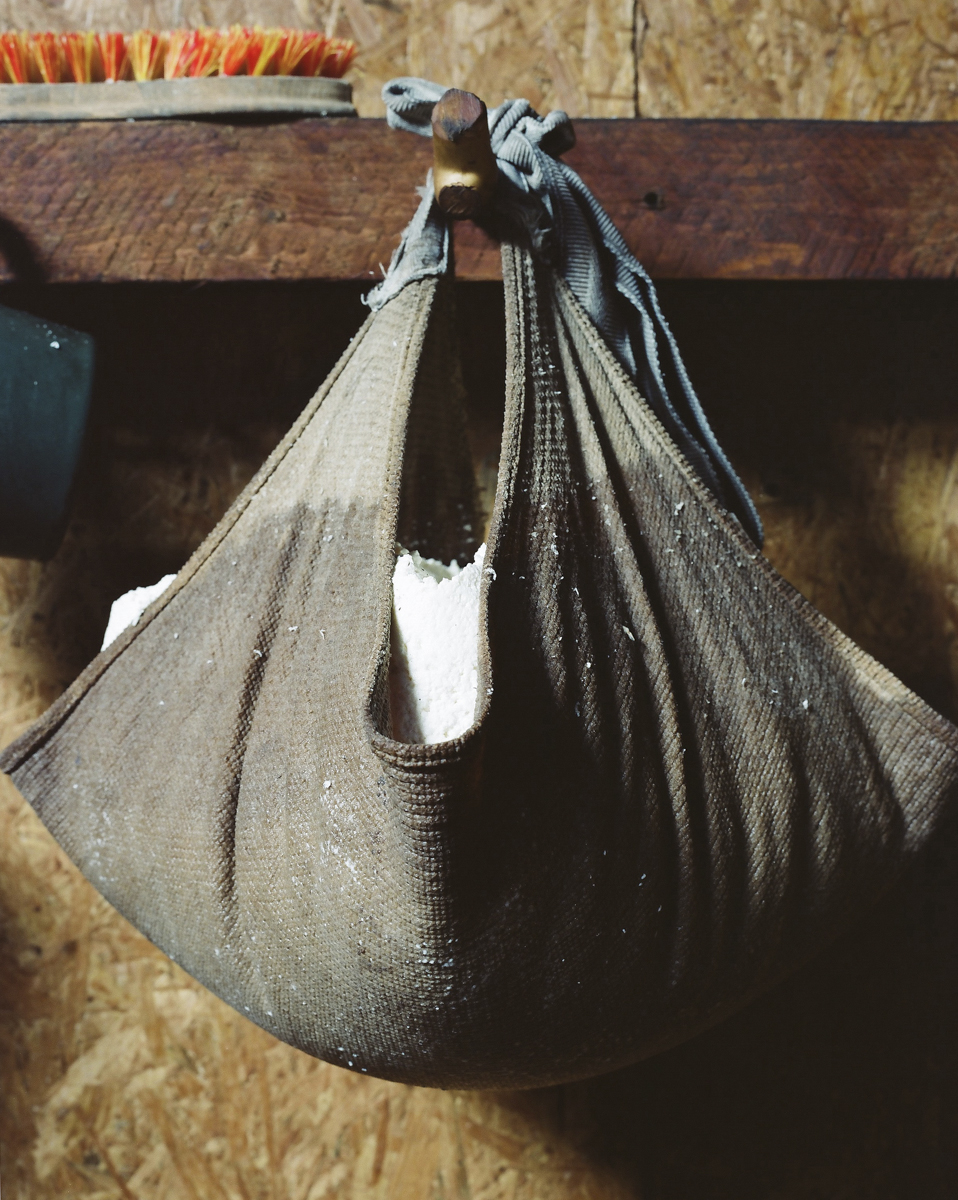Yesterday, I moved to this mountainous land of cows, alpine-horns, lakes and love. Busied with book-shelf assembly and arrangement of house-plants, I’d like to introduce Lu’s first writer’s contribution; this bright sketch of a similarly bright-tasting Swiss cheese. Yes, there is more to that world than just those pale yellow, hole-ridden slices: Bienvenue!
It was north-Romania summer of 2007, Bukowina’s country. A journalist and I were invited to investigate the consequences of Romania’s entrance into the EU for agriculture. After a long day spent in a very popular trout festival, someone who knew why we were there brought us to a tiny farm above a peak. She said a family there was still producing a forbidden cheese–Urda–following their generations-old recipe. This cheese is made with whey, heated over a wood-fire with a dash of vinegar, then hung in a cloth to solidify. Sometimes, it’s placed beside the fire place to make it smokey.
This pure white mass, still a bit flaky, cradled in cloth is simply gorgeous. It matures outside and is rinsed with the same white wine that the family drinks! Urda is, in fact, quite ubiquitous in all countrysides: from the panir of India, to the ricotta of Italy, to the serac (or ziger for the Suisse-Allemand amongst us) of Switzerland. Serac is made during the summer, when the cows are roaming the green mountain pasture. While the French may beg to differ, it is a decidedly Swiss tradition. We eat it as a fresh cheese, a cured cheese, a sweet cheese and a salty one.
The very interesting thing about serac is its kind of recycling process: originally it was a byproduct of of other more noble cheeses. The whey (or petit-lait in French–literally, little milk) was re-used to create this humble cheese, poor in fat but rich in protein. Urda, panir, ricotta, ziger, que serac, serac–whatever whey be, whey be.

